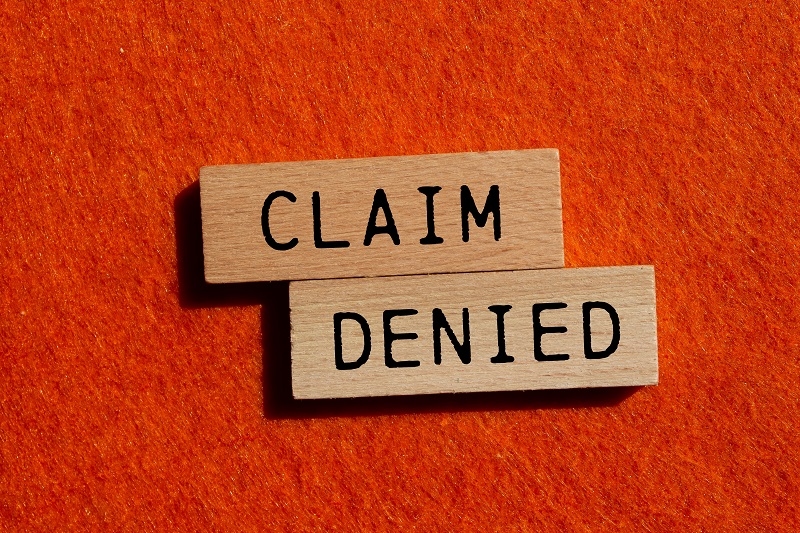
Business insurance is key to protecting your company's finances. Whether running a small startup or a large company, having the right insurance can shield you from the high costs of lawsuits, property damage, or worker injuries. But here's the thing: many business owners think their insurance covers everything, which isn't true. There are important things that business insurance doesn't cover, and knowing these can save you from surprises when you file a claim.
This article will review business insurance exclusions, pinpoint typical coverage gaps, and help you avoid claim denials by getting to know your policy – paying attention to the fine print. Let's dive deeper!
Most business owners get insurance to feel secure. That feeling can disappear fast if your insurance company turns down a claim. This usually happens because of exclusions – the parts of the policy that say exactly what isn't covered. Almost all business insurance has these, often hidden in the small print.
Knowing what your policy doesn’t cover is just as important as knowing what it does cover. If you don't know about these gaps, you might think you're protected when you're not. Even worse, you might not take steps to protect your business from these risks.
Here are some common things that Business Insurance doesn’t cover:
Most regular business insurance policies don't cover damage from war, invasion, or terrorism. This is a big deal for businesses in politically unstable areas or ones that could be targets because of what they do.
If your business is in a risky area, you might be able to buy a separate terrorism insurance policy to cover this.
Insurance is for sudden, accidental damage, not for things that wear out over time. If your equipment or property is damaged because of wear and tear, rust, or decay, it probably won't be covered.
This can cause claim denials, especially for businesses that rely on equipment that wears down, like manufacturers or delivery companies.
Some business insurance policies have a bit of coverage for employee dishonesty, but many don't unless you buy a specific bond or crime insurance.
If an employee steals money or inventory and you don't have crime coverage, that loss probably won't be covered.
We're using computers more and more, so cyberattacks are a big worry. But most general business policies don't cover cyberattacks. You need to buy separate cyber insurance to be protected.
Without it, your business is open to one of the most expensive risks out there right now.
If you sign a contract and then have a disagreement with the other person, your business insurance won't help unless you've added legal expense coverage. Even then, it might only cover part of the problem.
This is a big gap for companies that use service contracts or vendor agreements a lot.
Not all business insurance exclusions are the same for every business. Some industries have their own specific things that aren't covered. Here are a few examples:
It's crucial to know what your policy doesn't cover, particularly if your business is niche.
Just because something is covered doesn't mean you're fully protected. Policy limits are the maximum amount your insurance company will pay for a covered incident.
For example, if your policy covers property damage up to $100,000, but a fire wipes out $250,000 worth of stock, you're on the hook for the extra $150,000.
Always check if your policy limits are high enough to cover what you actually risk. If not, even covered losses can cost you a lot.

Sometimes, it's not about what's covered, but how the issue happened or how you reported it. Here are some common reasons why business insurance claims get rejected:
If you wait too long to tell your insurer about a problem, they might not pay the claim, even if it's something that's usually covered.
Claims often get turned down because the business owner didn't keep good records, like photos, receipts, or maintenance logs.
Some policies have safety rules you need to follow. If you don't, your claim might be denied, even if the problem is something that's normally covered.
That boring, super-detailed part of your insurance policy? It's important. This is where you find out what's not covered, how much the policy pays out, and other important rules.
When you're looking at your policy:
Spending a bit of time on this can help you avoid surprises and make sure you're covered.
Once you know what your policy doesn't cover, try to get that stuff covered if you can. Here's how:
Lots of insurers let you add extra coverage for specific things. These could include:
Ask your insurer about add-ons that make sense for your business.
For some bigger uncovered risks, it might be better to get a separate policy instead of an add-on. For example:
Separate policies often have better coverage and higher limits.
Your business changes, so your insurance should too. Make a note to check your policy at least once a year, or when your business takes on something new, like hiring more people or opening another location.
A good insurance advisor can be a big help. Look for someone who:
A small marketing company had insurance for property damage and general liability. But when a former employee sued them for saying bad things about them, they were surprised to learn their policy didn't cover it.
Why? They didn't get employment practices liability, thinking it was already included. This mistake cost them over $70,000 in legal fees because they didn't read the fine print or think about what might not be covered.
Understanding what your business insurance doesn't cover is really important. From things like cyberattacks and employee theft to not having enough coverage, the hidden problems in your insurance can be really expensive for your business.
Take the time to check your policy for what's not covered. Get extra coverage or separate policies to fill in those gaps. You can always avoid commercial claim rejections by knowing what you need to do and keeping good records.
This content was created by AI